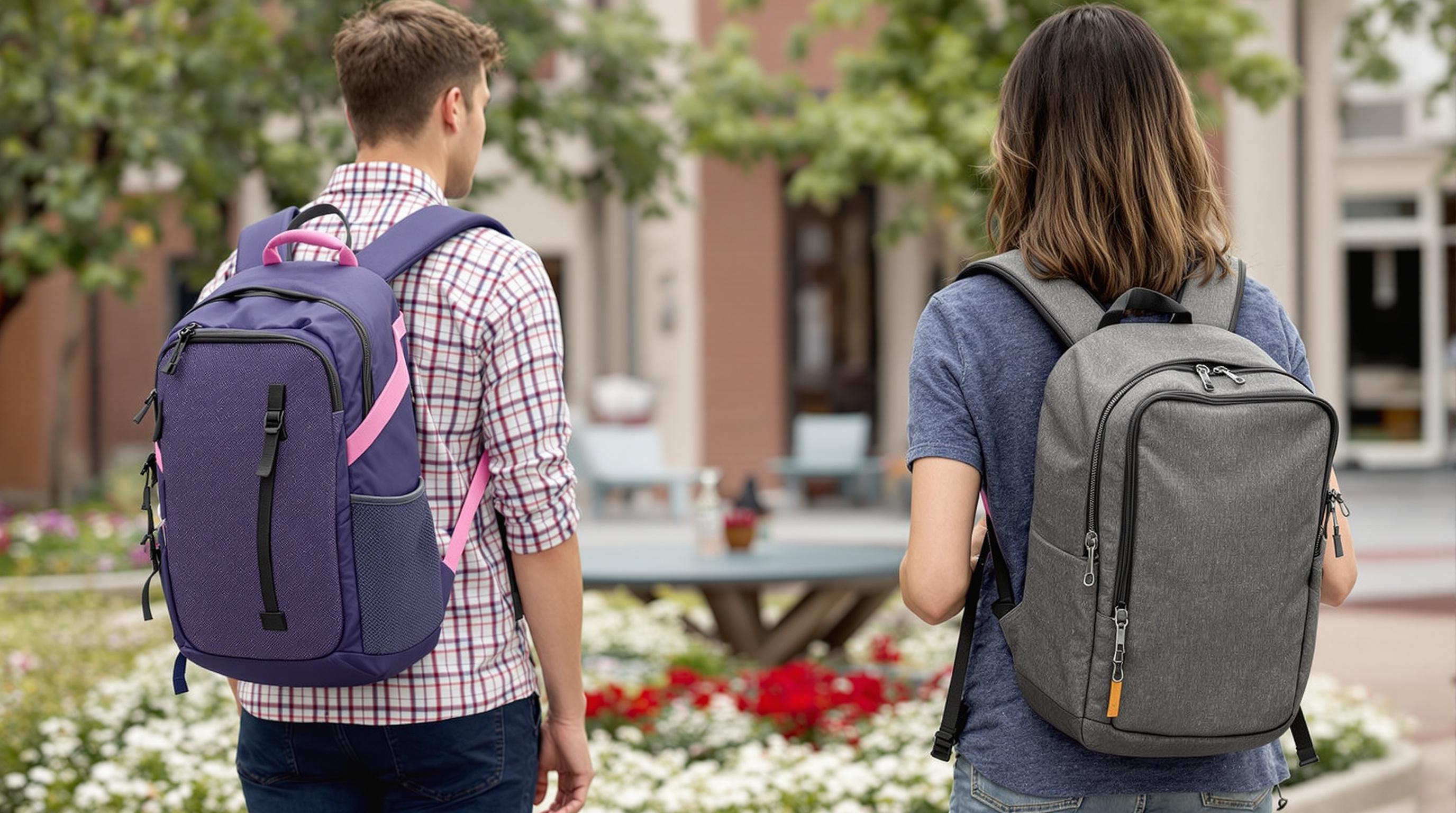Featured Articles
- "Chalk Art and Activism: How Campus Sidewalks Became a Canvas for Expression and Outrage"
- Quiet Quitting: The Unseen Impact of Minimalist Student Engagement on Campus Life Dynamics
- The Forgotten Art of Dining Hall Cuisine: A Culinary Exploration of Campus Life's Hidden Delights
- The Secret Life of Campus Pets: Uncovering the Furry Friends Behind Student Success Stories
- Top 6 Innovative Backpacks for Campus Life Revolutionizing Student Organization and Comfort Since 2019
Top 7 Must-Have Innovation Gadgets Launched in the Last 5 Years That Redefine Student Efficiency and Lifestyle
Top 7 Must-Have Innovation Gadgets Launched in the Last 5 Years That Redefine Student Efficiency and Lifestyle
Top 7 Must-Have Innovation Gadgets Launched in the Last 5 Years That Redefine Student Efficiency and Lifestyle
1. Smart Notebooks with Cloud Integration
Smart notebooks have revolutionized how students take and organize their notes. Devices like the Rocketbook Everlast combine the traditional feel of pen and paper with digital storage capabilities. Students can write notes that are instantly digitized and uploaded to cloud services such as Google Drive, Dropbox, or Evernote, ensuring notes are never lost and always accessible.
Besides convenience, smart notebooks encourage eco-friendliness by reducing paper waste. Many models allow pages to be wiped clean, making the same notebook reusable multiple times. This blend of analog and digital approaches fosters efficient study habits and seamless organization of coursework.
According to a 2022 review by TechRadar, smart notebooks boosted productivity among students by cutting down time spent on manual note transcription by over 30%. Their portability and integration with learning apps make them ideal for modern educational environments.
2. Noise-Cancelling Wireless Earbuds
With increasing demand for focused study sessions, noise-cancelling wireless earbuds have become essential for students. Brands like Apple AirPods Pro and Sony WF-1000XM4 offer advanced active noise cancellation, allowing isolation from distractions in bustling environments such as libraries and dorm rooms.
Besides noise reduction, these earbuds support voice assistant integration and simple touch controls, enabling students to manage calls, music, and even lecture recordings hands-free. The wireless design provides freedom of movement, suitable for multitasking during study breaks or workouts.
Research from the Journal of Educational Technology in 2023 linked the use of noise-cancelling audio devices to improved concentration and decreased study time, underlining their positive impact on learning efficiency.
3. Smart Planners and Study Organizers
Smart planners like the Moleskine Smart Planner combine traditional scheduling with digital synchronization. These devices sync calendars, tasks, and reminders with smartphones and computers, ensuring students never miss deadlines or exams.
Digital study organizers also provide AI-driven suggestions on optimal study times and break intervals based on personal habits, helping students manage time more effectively. Integration with educational apps further enriches the organizational experience.
Case studies in 2021 from the University of Cambridge highlight that students utilizing smart planners reported a 25% improvement in meeting assignment deadlines and higher overall academic performance.
4. Portable Document Scanners
Portable scanners like the Fujitsu ScanSnap iX100 allow students to quickly digitize textbooks, handwritten notes, and printed handouts. Their compact designs fit easily in backpacks, enabling scans on-the-go without reliance on bulky office equipment.
These scanners feature wireless connectivity to smartphones and cloud services, making it simple to organize and annotate study materials anywhere. OCR (Optical Character Recognition) technology converts text images into editable documents, boosting study flexibility.
Reports from PCMag in 2022 praise portable scanners for transforming study workflows by reducing manual data entry and allowing rapid access to essential academic resources.
5. E-ink Tablets for Reading and Note-Taking
E-ink tablets such as the reMarkable 2 and Kindle Scribe provide eye-friendly screens designed to mimic paper, reducing eye strain during long study sessions. Unlike typical tablets, they excel at reading and annotating PDFs, ebooks, and lecture slides.
Their battery life extends to weeks, much longer than traditional LCD devices, supporting uninterrupted study without frequent recharging. They often include stylus support with handwriting recognition, bridging the gap between digital convenience and handwritten clarity.
Educational technology experts note that e-ink tablets improve retention by encouraging active engagement with text through annotations, highlighting, and note creation directly on reading materials.
6. AI-Powered Language Learning Devices
Innovative language learning gadgets like the Pocketalk Translator enable real-time, two-way spoken translation across dozens of languages. These devices support students studying foreign languages or preparing for international studies by breaking down communication barriers.
Backed by cloud-based AI translation engines, these compact tools offer high accuracy and quick response times. Their offline modes ensure usability even without internet connections, enhancing study mobility.
A 2023 study from the Language Learning Journal found that students using AI translation devices showed faster vocabulary acquisition and improved conversational skills compared to traditional methods.
7. Fitness and Sleep Tracking Wearables
Wearables like the Fitbit Charge series and Apple Watch have expanded beyond fitness to include features vital for student wellness, such as sleep quality tracking, stress monitoring, and guided breathing exercises. Maintaining physical and mental health is crucial for academic success.
By providing insights into sleep patterns and activity levels, these gadgets help students optimize daily routines to enhance focus and energy. Integration with smartphone apps allows setting personalized goals and reminders for balanced study-life approaches.
According to a 2022 study in the Journal of College Health, students who used wearable health trackers reported better sleep hygiene and reduced stress, correlating with improved academic outcomes.
References
TechRadar. (2022). Best Smart Notebooks for Students. Retrieved from https://www.techradar.com
Journal of Educational Technology. (2023). The Impact of Noise-Cancelling Devices on Student Concentration. Vol. 39, Issue 2.
University of Cambridge. (2021). The Effectiveness of Smart Planners in Academic Performance. Cambridge Education Reports.
PCMag. (2022). Portable Document Scanners Reviewed. Retrieved from https://www.pcmag.com
Language Learning Journal. (2023). AI Translation Devices in Language Acquisition. Vol. 48, Issue 1.
Journal of College Health. (2022). Wearable Technology and Student Wellness. Vol. 70, Issue 3.




